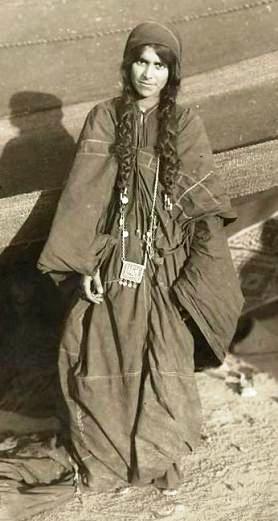
(The “real” Mary probably looked a lot like this.)
The story of the real Mary of Nazareth has rarely, if ever, been told.
The real Mary was an ordinary woman who was called to an extraordinary vocation—to be the mother of the Messiah. And therein lies the “extraordinariness” of Mary. How does a woman, who was in every human sense genuinely ordinary, live up to such an extraordinary calling? The point here is that an “ordinary Mary” (as opposed to the syncretic vestal virgin demigoddess of certain theologies) is a Mary we can relate to. The “mother of God”1 on the other hand, is so non-ordinary, and therefore so non-human, so alien, that she is utterly “un-relatable”.
The marvelous paradox of the son of man himself, is that God incarnate took on human form and lived within human limitations. Mary, as human and only human, had no other option than to live within human limitations to Emmanuel—God with us—for the duration of his earthly ministry–to be with him and closely and intimately watch him willingly go to the cross. If she did that as anything other than an ordinary human, as you and I would, again, she becomes “un-relatable” to us.
But if she did it as an ordinary person—then she represents each of us in our calling to live in a close, intimate, vital relationship with God incarnate.
Ruminate on that one for a minute.
God Save the King
Footnotes-
- Anyone who reads the writing of the early church knows that the word translated “mother of God” is the Greek theotokos. The word literally means “God-bearer.” After the 4th century, it became so common a title for Mary that we often find her simply being called theotokos in devotional and theological writings. But the word is not found in the Bible—only in early Christian writings—so where did it come from? Around the beginning of the 4th century, Alexander, Bishop of Alexandria, first used this term when speaking of Mary. The problem however (with the whole “mother of God” issue) is that the term is Christological in nature. In other words, theotokos, as used in these early writings, was intended to say more about Christ than Mary. The term was used in these early writings as a focus on Christ and was meant to safeguard the truth about his absolute deity in the face of the Arian heresy. It is a nuanced distinction that can be difficult to articulate. The objection to “mother” of “God” is that it implies that Mary is origin of deity. But Christ, as God incarnate, is self-existent and therefore has no origin. Hence, “mother of God” as used by Roman Catholics and Orthodox Christians is considered heterodox by Protestants. Theotokos however, means “God-bearer”—the one who “gave birth to” God (not “origin”). There are many Protestants who have no issue calling Mary the “mother of God” as long as it means the “human vessel that gave birth to God incarnate” as opposed to a dogmatically exalted demigoddess who is a perpetual virgin and bodily assumed into heaven.